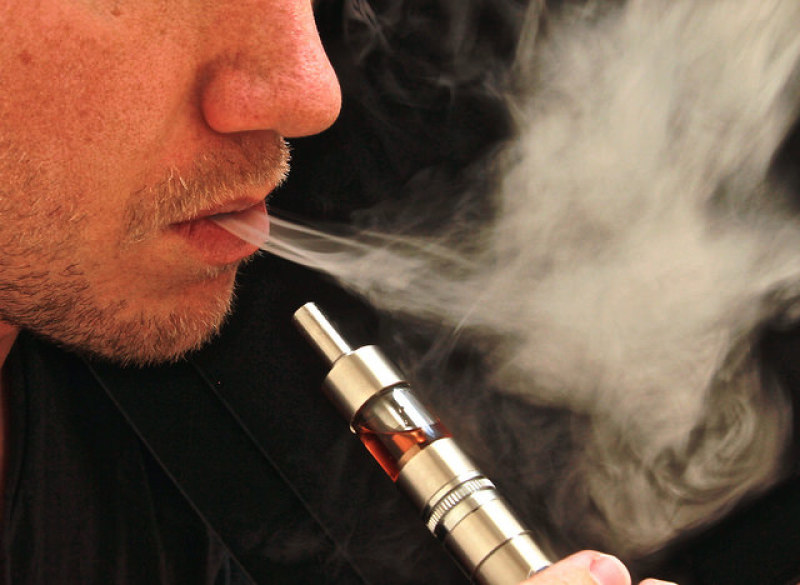
A new study carried out by researchers from Boston's Harvard School of Public Health highlights a link between the use of electronic cigarettes and a type of severe lung disease known as popcorn lung.
According to the researchers, this disease can be caused by the chemicals found in the flavoring ingredients of e-cigs, Health Day reported.
For the study, the researchers analyzed a total of 51 variants of flavored e-cigarettes and discovered that 47 of them contained the chemical diacetyl. They also discovered other the chemicals acetoin in 46 variants and 2,3-pentanedione in 23 e-cigs.
According to the researchers, inhaling these chemicals, particularly diacetyl, can lead to the development of a severe lung disease known as bronchitis obliterans. This irreversible sickness was nicknamed popcorn lung in 2000 after employees of a microwave popcorn factory in Missouri contracted the disease. Reports stated that the employees got ill after continuously inhaling the artificial butter flavoring for the popcorn inside the facility.
But, aside from popcorn and e-cigarettes, the researchers noted that diacetly is also used in other food items.
"Recognition of the hazards associated with inhaling flavoring chemicals started with popcorn lung over a decade ago," lead researcher Joseph Allen said according to Health Day. "However, diacetyl and other related flavoring chemicals are used in many other flavors beyond butter-flavored popcorn, including fruit flavors, alcohol flavors, and we learned on our study, candy-flavored e-cigarettes."
Allen and his team also said that the recently conducted study adds another important detail to the growing health concerns associated with electronic cigarettes. Previously, various studies focused on the addictive factor of these devices due to their addictive content while other reports highlighted the cancer-causing properties of e-cigarettes. And now, the latest study has revealed how constant use of e-cigs can cause lung disease.
Laura Alexander, a representative for the American Thoracic Society and an assistant professor at the University of California in San Diego noted that the new study and others like it are vital in spreading awareness regarding the truth behind these cigarette replacements.
"Kids and adults both really believe it's water vapor and it's safe," she told CBS News. "The study is yet another scary indicator of the chemicals that are contained in these drug delivery devices that are going to end up causing significant lung disease."
The findings of the researchers were detailed in a report published on December 8 in the journal Environmental Health Perspectives.


















